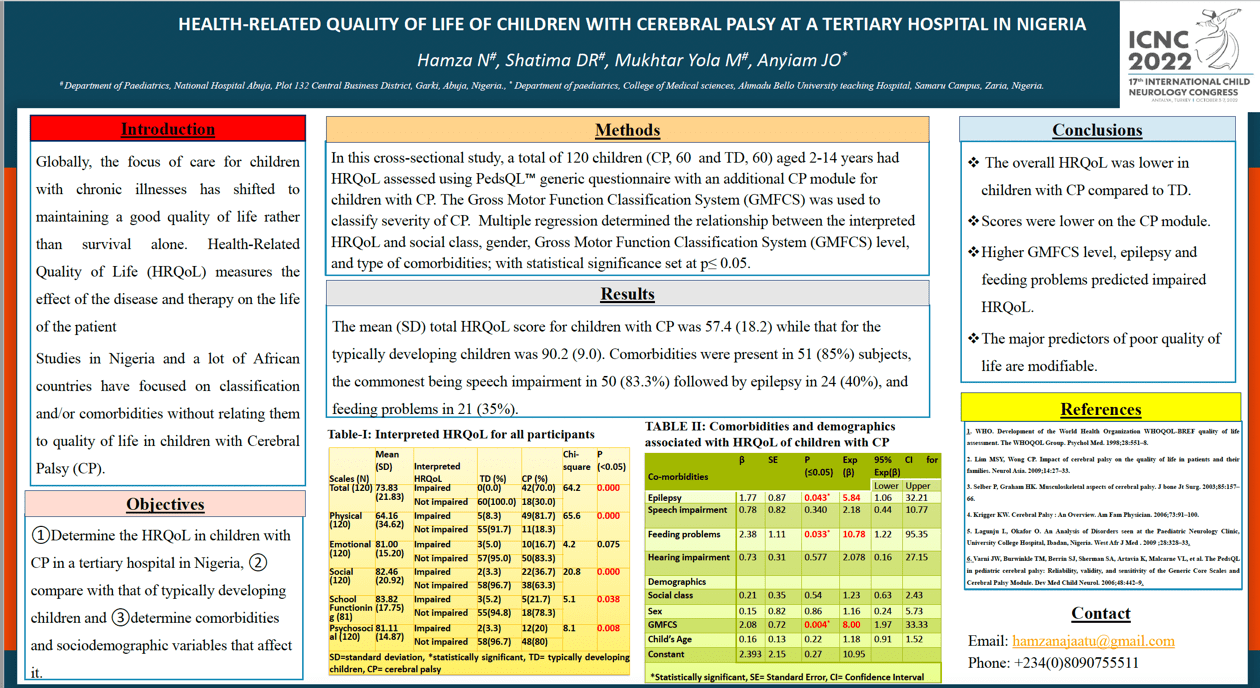HEALTH-RELATED QUALITY OF LIFE OF CHILDREN \WITH CEREBRAL PALSY AT A TERTIARY HOSPITAL IN NIGERIA
Naja'atu Hamza, Denis Richard Shatima, Mariya Mukhtar Yola, Jane Oowo Anyiam
OBJECTIVES: To measure the Health-Related Quality of Life (HRQoL) of children with Cerebral Palsy (CP) at a tertiary hospital in Nigeria, compare it with that of children without CP, and identify factors that affect it. METHODS: A total of 60 children with CP and 60 typically developing children aged 2-14 years were enrolled. The HRQoL of both groups was assessed using PedsQL™ generic questionnaire with an additional CP module for children with CP. The relationship between the interpreted HRQoL and social class, gender, Gross Motor Function Classification System (GMFCS) level, and type of comorbidities; was determined with statistical significance set at p≤ 0.05. RESULTS: The mean (SD) total HRQoL score of children with CP was 57.42(18.24) while that of typically developing children was 90.23(9.01). The subscale scores were much lower using the CP module which does not have an overall score. There were statistically significant differences between the two groups’ mean Total, Physical, Emotional, Social and School functioning scores where p-value was 0.004 for the emotional subscale, 0.001 for school functioning, and <0.001 for the remaining subscales. The predictors of impaired HRQoL were feeding problems, epilepsy and severe motor disability. CONCLUSION: The HRQoL of children with CP in this study is impaired and the predictors of impaired HRQoL are largely modifiable.
Keywords: Cerebral Palsy, Quality of Life, Caregiver reported, predictors, Nigeria
Naja'atu Hamza
National Hospital
Abuja
Nigeria
Denis Richard Shatima
National Hospital
Abuja
Nigeria Mariya Mukhtar Yola
National Hospital Abuja
Nigeria
Jane Oowo Anyiam
Ahmadu Bello University Teaching Hospital
Nigeria
